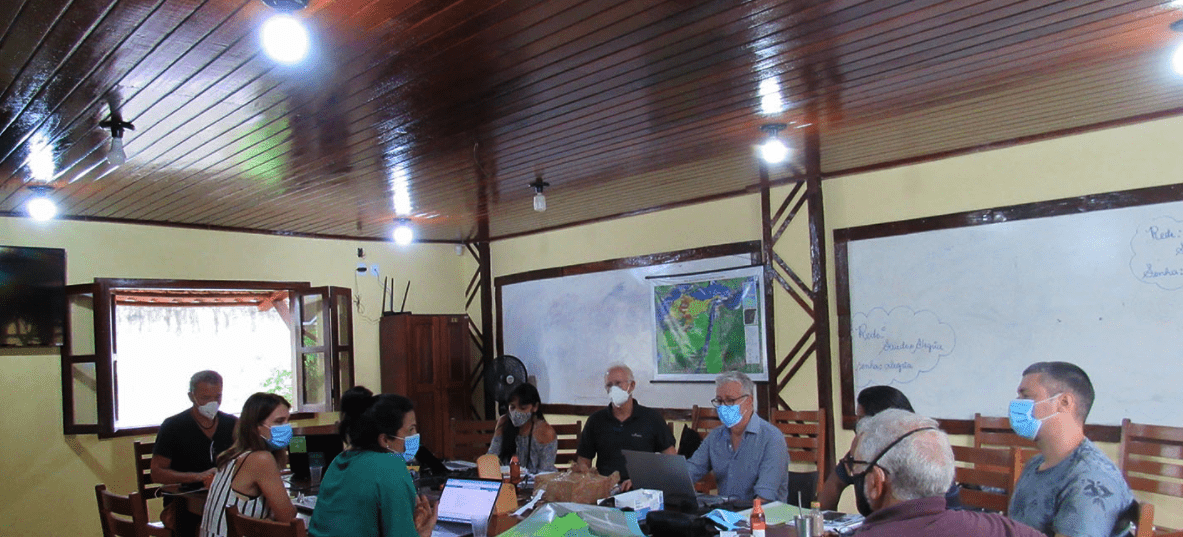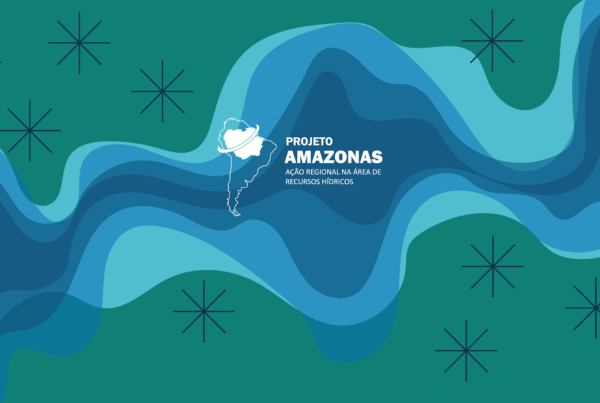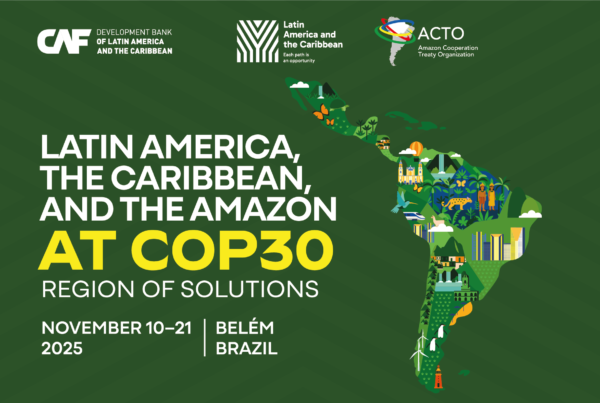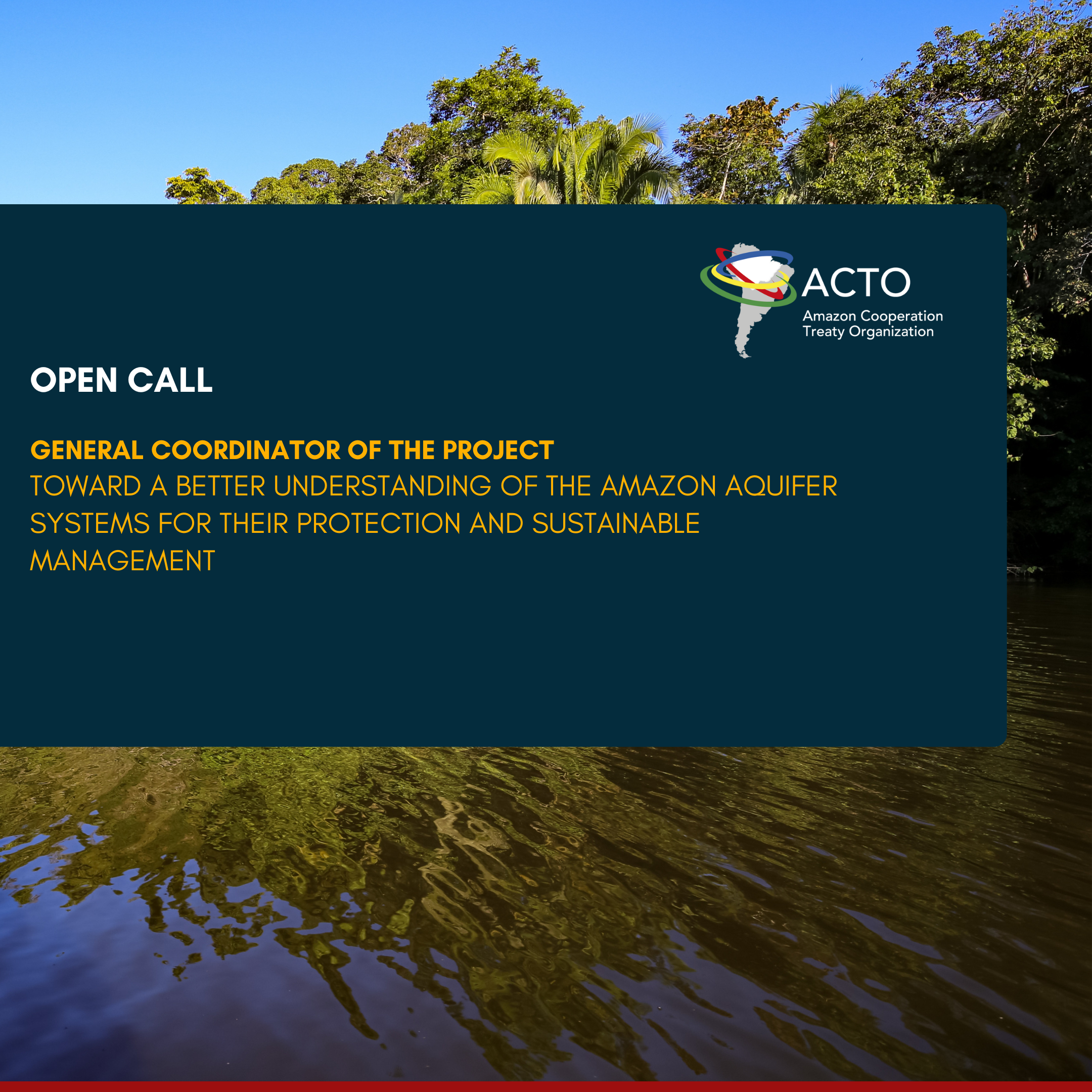To discuss the situation of COVID-19 and the health of Indigenous peoples living in the border region of Brazil, Guyana and Suriname, a meeting was held from January 17 to 19, in Santarém do Pará, Brazil, led by the Amazon Cooperation Treaty Organization (ACTO).
Institutions such as the Salud y Alegría Project, Instituto Iepê, Universidad Federal del Oeste del Pará (UFOPA), and Indigenous leaders representing AIKATUK, FEPIPA and COIAB participated in the event. Likewise, logistical terms were supported by the Salud y Alegría Project and the UFOPA, contributing with the COVID-19 tests for the participants.
The results of this meeting serve as input for the guidelines to be developed and the recommendations for a contingency plan, including strategies to mitigate the effects of infectious diseases, with basic health care for those peoples who inhabit this cross-border area in northern Pará, Roraima and Amapá (Brazil), including Guyana and Suriname, inhabited by several Peoples, such as Tiriós, Wai and Zoé.
In addition, the cultural components are considered in the contingency plan with the full participation of Indigenous peoples for the empowerment of the proposals submitted.
During the three days of the meeting, the representatives of Civil Society, indigenous representatives, and health specialists exposed about their experiences in the fight against COVID-19, including the case of the Zoé people that was reported by the doctor Erik Simões (SESAI). This case has been a benchmark in confronting the pandemic threat, complying with protocols with Indigenous participation.
ACTO was represented by the project coordinator Carlos Macedo, by the consultant Antenor Vaz, by the doctor Fabio Tozzi and the expert Roberta Cerri (doctoranda/Fiocruz), who presented the project Contingency Plan for Health Protection of Indigenous Peoples highly vulnerable and in initial contact (ACTO/ PAHO/IDB).
According to Macedo, one of the fundamental phases of the contingency plan is the study of the health situation with a territorial base. “To obtain this information, we have worked with government stakeholders, civil society and Indigenous communities and, in the coming months, we will speak with their leaders, and we will present the guidelines emanating from this meeting,” he explained.
The interventions were directed towards the articulation of a contingency plan for the border region. The discussion was nourished by relevant inputs from the Namofo Indigenous leaders Leo Kaxuyana Tiriyo and Luana Kumaruara with information and data from the communities. This information will serve as a basis to promote a series of agreements and inter-institutional actions.
The UFOPA representative, Dr. Heloisa de Nascimento, who participated by teleconference, presented a detailed overview of the mercury situation and its impacts on the health of Indigenous and traditional communities in the Tapajós River region and the Brazil/Guyana/Suriname border.
Finally, COIAB technical consultant, Fabrício Amorim, proposed establishing different goals to prepare draft guidelines and recommendations promoting measures and public policies with fundamental intercultural criteria for the protection of the Health of Indigenous Peoples.
The Iepê, represented by Denise Fajardo, confirmed participation in the ACTO team of consultants and collaborators to follow-up on the activities and organize an upcoming coordination meeting among the main local actors to support the initiative to protect the health of Indigenous Peoples highly vulnerable and in initial contact.



